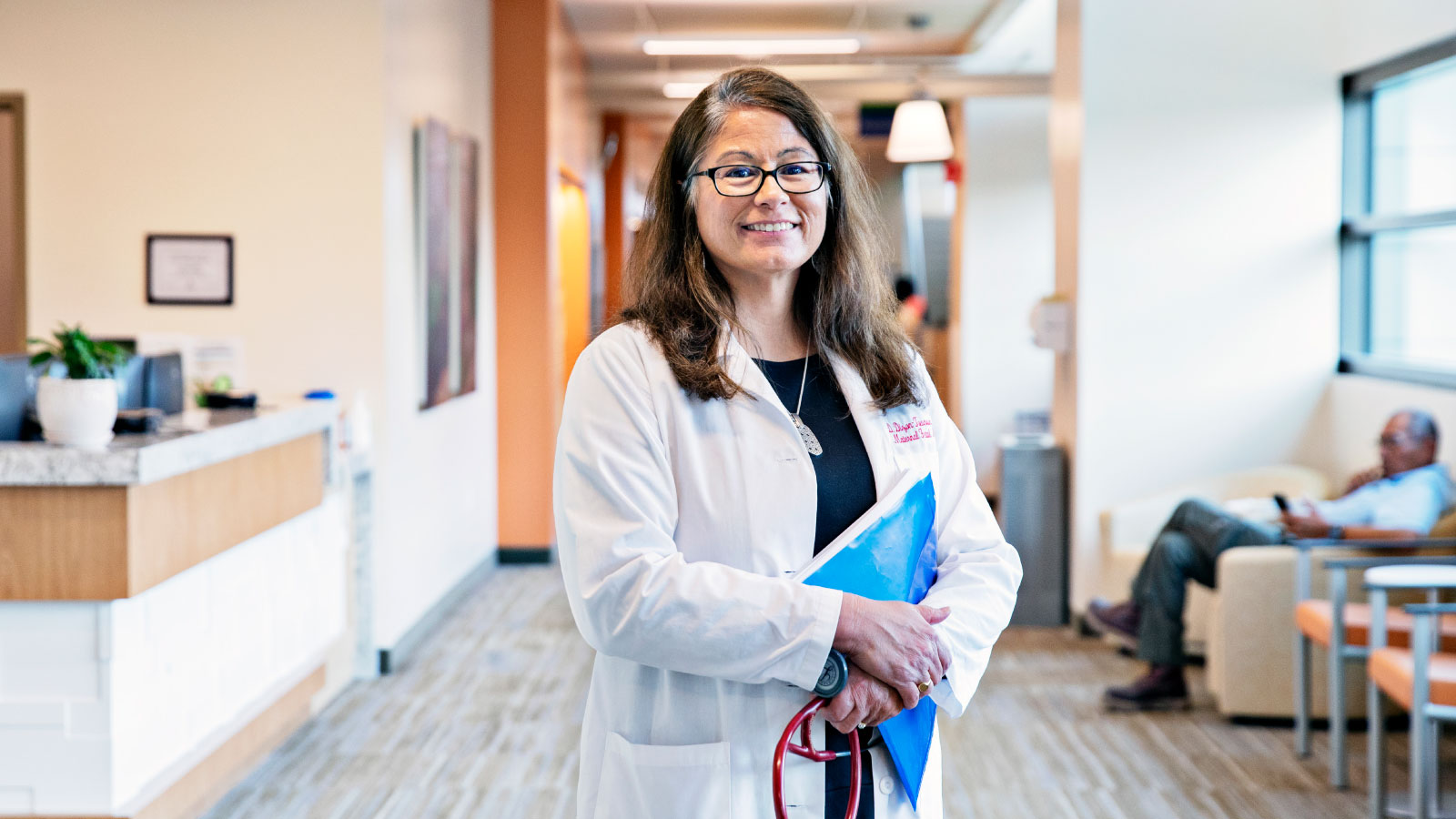Donna Dizon-Townson
BS ’86, MD
Sandy, Utah
Medical Director, Clinical Programs, South Region of Intermountain Health Care
Associate Professor, Department of Obstetrics & Gynecology, University of Utah
Donna Dizon-Townson is particularly qualified to respond about the importance of research.
This is a critical time that the University is asking itself how research enhances the value of an undergraduate degree. The commitment to undergraduate research is essential to the mission of Baylor University: “To educate men and women for worldwide leadership and service by integrating academic excellence and Christian commitment within a caring community.”
Research and the development of an individual’s expertise contribute to the academic excellence for which we should all strive. The vast majority of applicants to graduate programs, especially medical school and other prehealth professions, have research experience. It is not uncommon for undergraduate students to have published in peer-reviewed journals. Research experience is now considered an expected “norm” for acceptance to many graduate programs.
"Research and the development of an individual’s expertise contribute to the academic excellence for which we should all strive."
A Baylor education provides the foundation for a person to become a leader in his or her profession. Research is essential to academic excellence and leadership. With respect to its mission, Baylor has a responsibility to ensure quality research opportunities are available for undergraduate students.
Research allows a student to think outside the box. Innovation and development of novel approaches to complex questions in science and medicine require critical thinking. The development of a hypothesis, the methods to objectively test that hypothesis, and the interpretation of those results are the skills learned as a student doing research.
Graduate programs may serve as the link between senior faculty and undergraduate students. These relationships promote the nurturing and caring environment where an undergraduate student can thrive. Graduate students have a unique role and can often be the inspiration for the development of critical thinking. These individuals often are key to the undergraduate learning process.
I recall two individuals that had a significant impact on my education at Baylor. These two individuals represent Baylor’s caring community.
First was a graduate student who taught our organic chemistry lab. This lab’s reputation for being a tough “weed out” course was well known throughout the pre-medical/pre-dental community. Despite the course’s reputation, my experience taking the course was positive. I remember the graduate student teaching the course saying, “If for any reason you don’t get into medical school, you should consider a career in chemistry.” These simple but encouraging words were evidence that this teacher believed in my potential for success in the sciences.
The second individual I have wonderful memories of is the late Dr. William Hillis. He taught two highly sought-after courses at Baylor: histology and immunology. There was always a wait list for these classes. He taught these two courses with the same rigor of a medical school level course. While I was at Baylor, he was named vice president of the University. Despite an additional workload, Hillis was committed to teaching. He arranged teaching of his immunology course in the evenings and, sure enough, that class was full. This class provided me with an unsurpassed foundation in the basic principles of immunology, which I continue to use while caring for patients in my clinical practice. I still have a couple of tests that he graded and wrote personal notes such as “Donna, Good luck, I am sure you will do well.” I am sure, to this day, that Hillis continues to be an inspiration to many healthcare professionals and scientists who had the opportunity to take his classes while at Baylor.
Currently, I am in clinical practice with Intermountain Healthcare and also an associate professor at the University of Utah. My profession has allowed me to have a diverse mix of clinical medicine, research opportunities, and medical student/resident education.
I get to see first hand how students benefit from being involved in research. It is rewarding to observe a student find a research project that incites an interest in a specific area. Students learn to ask questions, develop hypotheses, perform research, interpret data, and summarize conclusions. It is this process of learning to do research that provides the foundation for the achievement of academic excellence. Some students choose a path of clinical medicine while others choose a career in scientific research. Regardless of which path students choose, knowledge of the basic principles of research promotes excellence and leadership in their fields.
Moving forward, Baylor’s challenges to expand research opportunities will require a commitment of resources to the development of structured research programs to all students. This commitment should include accessibility of research opportunities to undergraduate students. Recently, the Baylor Board of Regents approved funding to expand core facilities for enhancing research in the Baylor Sciences Building. This is an exciting time for Baylor and all of its faculty and students.
